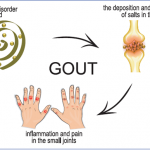CTSA grants are primarily used to fund the infrastructure of research programs—providing money for personnel and equipment for informatics statistics, for instance, and salaries for clinical coordinators and nurses. “Many CTSAs provide support for tools and personnel that can be used by many investigators so they don’t have to develop these tools themselves or have their own cadre of research support staff for each project they initiate,” Dr. Firestein says. Thus, research becomes both more collaborative and more efficient—and frees scientist from having to find funding for a research infrastructure for each of their scientific projects, he says.
Each CTSA-funded institution gets a grant for five years, but funding for each academic center varies depending on what resources they already have in place—ranging from $4 million to over $20 million over 5 years, according to Dr. Hayward. Although each CTSA-funded center supports different researchers and scientific projects, they share some commonalities. The CTSA funds are specifically used to provide clinical research infrastructure, to fund pilot research projects that are both novel and translational in nature, and to run training programs in scientific research for scholars at the postdoctoral level and in medical, dental, and nursing schools.
Rheumatology in Translational Research
The Clinical and Translational Science Institute at the New York University School of Medicine—which receives CTSA funds—supports between 80 and 100 scientific studies, including a registry for neonatal lupus and studies such as a basic science investigation into the role of the microbiome in the development of autoimmunity in RA, according to rheumatologist Bruce Cronstein, MD, Paul R. Esserman Professor of Medicine and director of the NYU Clinical and Translational Science Institute.
Other rheumatology scientific studies being conducted at CTSA-funded translational institutes include one that is developing an algorithm for prediction of arthritis pain based on weather forecasts at Tufts University in Boston and identification of biomarkers that might predict disease onset and severity of RA at Stanford University in Stanford, Calif. Also, a study at the University of California, San Diego is studying the novel combination therapy of the immunomodualatory peptide dnaJP1 with a chloroquine derivative—(hydroxyl)chloroquine (HCQ)—for the treatment of RA and autoimmune disorders.
Online Translational Resources
The CTSA program has birthed many innovative Internet research tools that can be accessed by any scientist or patient interested in participating in or getting information for scientific studies, including those on translational research. “These Internet sites provide researchers with a lot of information in one place that they can speedily access so they don’t have to search in a lot of different places,” Dr. Hayward says.
- Information on how to collaborate on research at CTSA-funded institutes as well as information about the newest developments about the CTSA program can also be easily accessed through the CTSA site (www.ctsaweb.org).
- ResearchMatch (www.researchmatch.org) is a registry designed to provide patients with opportunities to be considered for clinical research studies
- i2iConnect (www.i2iconnect.org) is a database of industry contacts looking for new ideas and products. At i2iConnect, researchers can search by specialty and disease area to find potential industry partners interested in their work.
- CTSA-IP (www.ctsaip.org) is a search engine that combines and promotes technologies from CTSA institutes and the NIH to enhance research partnerships, and is open to any researcher or clinician.
- The CTSA Pharmaceutical Assets Portal (www.ctsapharmaportal.org) provides scientists with information about compounds now being used to treat specific diseases that might be useful for other conditions.
The Future of CTSAs
The new emphasis on translational research at the NIH and the formation of the NCATS, including the CTSA program, is thought to be Dr. Collins’ signature initiative as director of the NIH, says Dr. Cronstein, who is also chair of the CTSA consortium executive committee, which oversees the CTSA program and assesses how well CTSA center are helping to meet the program’s strategic goals.

